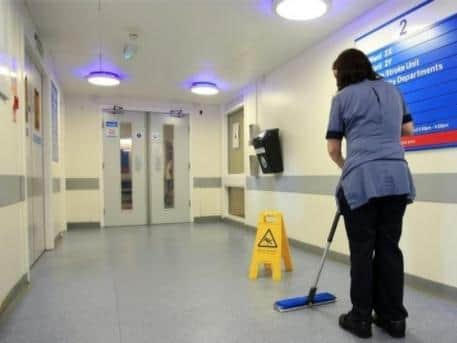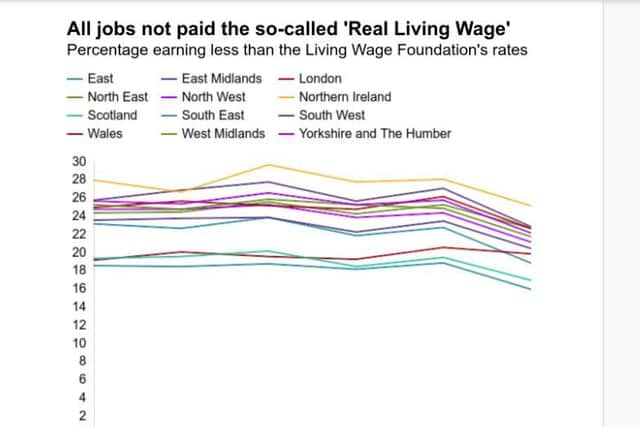16.5% of Aylesbury Vale key workers not paid the 'real living wage', figures reveal
and live on Freeview channel 276
The real living wage is a voluntary scheme devised by the Living Wage Foundation. It is calculated independently from the government and is based on costs such as food, clothing and household bills.
Figures seen by the Bucks Herald suggest as many as 13,000 key workers could not be receiving the 'living wage' across Aylesbury Vale.
Advertisement
Hide AdAdvertisement
Hide AdThis amounts to 16.5% of key workers who are not receiving the living wage for their work.


One in five UK employees earn below the Living Wage Foundation rates, including hundreds of thousands of key workers including hospital cleaners and porters, teaching assistants and carers.
The Living Wage Foundation rates are currently £10.75 an hour for those working within London and £9.30 an hour for those working in the UK outside London.
The scheme is separate to the statutory National Living Wage, which is the legally-binding hourly rate for workers aged 25 and over. It is reviewed every year just like the National Minimum Wage (for under 25s).
Advertisement
Hide AdAdvertisement
Hide AdThe government raised the National Living Wage to £8.72 an hour from 1 April.


The GMB union said the coronavirus crisis had shone a light on the “rock-bottom pay” of the people “expected to risk their health to protect us”. It says more than three million workers could be affected and called for key workers’ wages to be raised.
Economists have, however, urged against further wage rises before the full toll of the crisis is clear.
The Low Pay Commission, an independent body which advises the government, warned it might be necessary to apply an "emergency brake" on long-term plans to continue to lift the statutory minimum.
Advertisement
Hide AdAdvertisement
Hide AdThe Department for Business, Energy and Industrial Strategy said: "It is right we ensure the lowest paid are fairly rewarded for their contribution to the economy, particularly those working in essential services during the biggest threat this country has faced in decades.
"This year's increase to the National Living Wage means we will be putting an extra £930 a year into the pockets of 2.4 million of the UK's lowest paid workers."
The Resolution Foundation, who are an independent British think tank with the goal of improving the standard of living of low- and middle-income families have said that low paid workers are playing an 'essential' role in steering the country through the crisis.
Nye Cominetti, Senior Economist at the Resolution Foundation think-tank said:
Advertisement
Hide AdAdvertisement
Hide Ad“Britain’s low-paid workers have been at the heart of the current economic crisis, for good and bad reasons.
“Low-paying sectors like hospitality, travel and non-food retail have been most affected by the government’s lockdown, with firms closing and job losses mounting.
“More positively, workers in low-paying sectors – from supermarket staff to care workers and hospital porters – are playing an essential role in steering the country through the crisis.
“Many of these workers will have benefitted from big increases in the National Living Wage, and some will have additionally benefited from wider adoption of the real living wage.
Advertisement
Hide AdAdvertisement
Hide Ad“For public sector workers in particular, some local authorities are already living wage accredited.
“Once we emerge from the crisis, other councils and public sector bodies should sign up too to show how much their lowest-paid frontline workers are valued.”